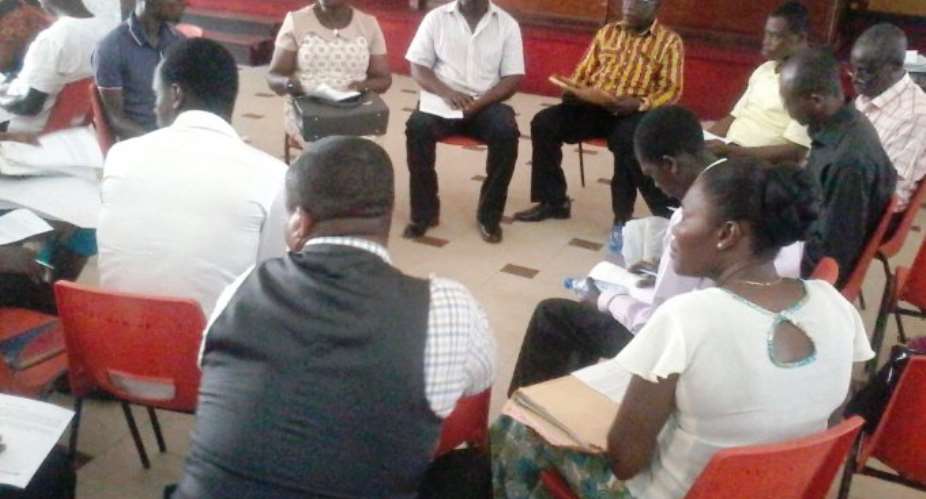The Ghana Education Service (GES) says it is keen on integrating children with moderate disability into the regular education system.
Officials say an all inclusive educational approach would ensure equal opportunity to the Ghanaian child of school-going age.
Currently, there are approximately 6,314 of children with disability, in the various special schools and units throughout the country.
This figure, according to the GES represents less than two per cent of the estimated children with special needs in the country.
“The figure should clearly indicate to all of us that more ought to be done in our collective efforts at providing education for children with special needs in the country,” said Anthony Boateng, GES Director of Special Education.
According to the Unit, the system of providing the segregated form of education has been found to be counter-productive.
Mr. Boateng however believes this is not the best if the children are to be fully integrated into the entire society.
Earlier this year, the Garden City Special School in Asokore Mampong, for instance, had to return about four hundred children with disability because of space.
As a first step, a special department will be set up within the Special School Unit to examine and ascertain the level of disability of students for admission.
There is however concerns the special school system could be phased out if the proposed policy is implemented.
Mr. Boateng however dispels such fears.
“The special schools will still be in operation but will take care of severe cases of children with special needs,” he explained.
He says inclusive education should be seen as part of global strategy of promoting, especially, the right of all children to education.
The Special Education Unit is currently on a nationwide sensitization exercise with stakeholders on implementation guidelines.
Mr. Boateng revealed that the program is already in pilot in 14 districts but increased to 20 districts this year.
“It was planed that this year the initiative will be rolled out nationwide, but has been delayed because the minister is yet to approve the guidelines,” he said.
Lessons have been learnt from these districts – pilot districts – and that is what is expected to be shared as they roll out nationwide.





 Whoever participated in the plunder of the state must be held accountable – Jane...
Whoever participated in the plunder of the state must be held accountable – Jane...
 A vote for John and Jane is a vote to pull Ghana from the precipice of destructi...
A vote for John and Jane is a vote to pull Ghana from the precipice of destructi...
 I’ll repay your abiding confidence with loyalty, understanding and a devotion to...
I’ll repay your abiding confidence with loyalty, understanding and a devotion to...
 ‘I’ve learnt deeply useful lessons for the future' — Serwaa Amihere breaks silen...
‘I’ve learnt deeply useful lessons for the future' — Serwaa Amihere breaks silen...
 I’m sorry for the embarrassment – Serwaa Amihere apologises for leaked sex video
I’m sorry for the embarrassment – Serwaa Amihere apologises for leaked sex video
 Dumsor: Matthew Opoku Prempeh not in charge of Energy sector – Minority
Dumsor: Matthew Opoku Prempeh not in charge of Energy sector – Minority
 Adu Boahen’s murder: Police arrest house help who was in possession of deceased’...
Adu Boahen’s murder: Police arrest house help who was in possession of deceased’...
 Akufo-Addo nominates Felicia Attipoe as Tema West MCE
Akufo-Addo nominates Felicia Attipoe as Tema West MCE
 Election 2024: I can't have someone I defeated twice as my successor – Akufo-Add...
Election 2024: I can't have someone I defeated twice as my successor – Akufo-Add...
